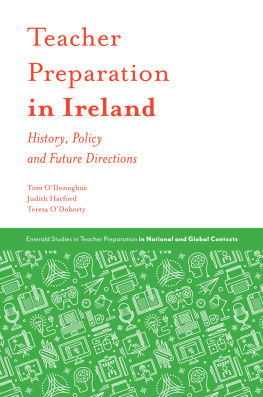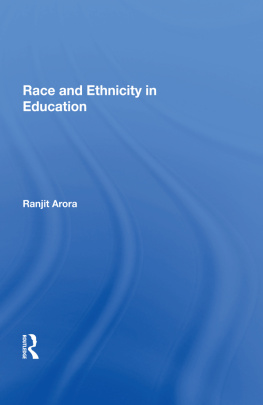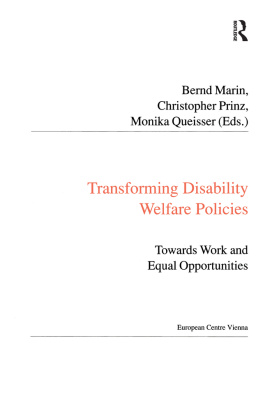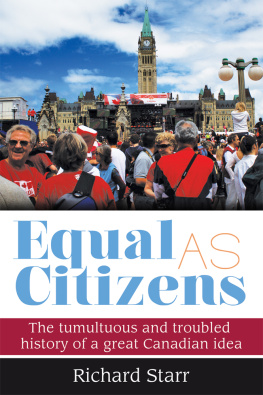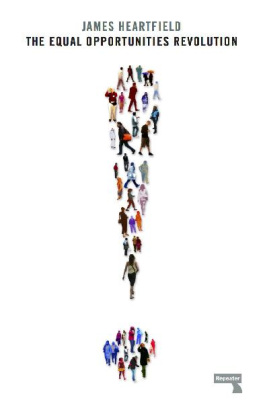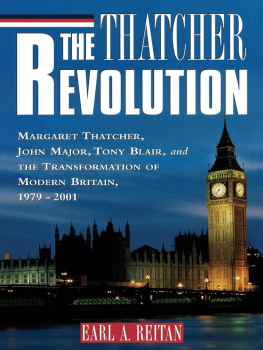PREPARATION FOR LIFE?
For Granny and in memory of Nanna
Preparation for Life?
Vocationalism and the Equal Opportunities Challenge
SUE HEATH
First published 1997 by Ashgate Publishing
Reissued 2018 by Routledge
2 Park Square, Milton Park, Abingdon, Oxon, OX14 4RN
711 Third Avenue, New York, NY 10017, USA
Routledge is an imprint of the Taylor & Francis Group, an informa business
Copyright S. Heath 1997
All rights reserved. No part of this book may be reprinted or reproduced or utilised in any form or by any electronic, mechanical, or other means, now known or hereafter invented, including photocopying and recording, or in any information storage or retrieval system, without permission in writing from the publishers.
Notice:
Product or corporate names may be trademarks or registered trademarks, and are used only for identification and explanation without intent to infringe.
Publishers Note
The publisher has gone to great lengths to ensure the quality of this reprint but points out that some imperfections in the original copies may be apparent.
Disclaimer
The publisher has made every effort to trace copyright holders and welcomes correspondence from those they have been unable to contact.
A Library of Congress record exists under LC control number: 97074445
ISBN 13: 978-1-138-32664-4 (hbk)
ISBN 13: 978-0-429-44938-3 (ebk)
Contents
This book is based on research which I first embarked upon back in 1989, whilst working as a research officer for Masonfield LEAs central TVEI team, at the same time as studying part-time at Lancaster University. Three jobs and eight years later I still remain fascinated by TVEIs equal opportunities policy, not least because of the light it has shed on my own experiences of schooling. I experienced secondary education during the second half of the 1970s, and attended a comprehensive school with a rather nice line in the mixed messages it gave out concerning gender and equal opportunities. A close friend, one of only three non-white pupils in the school, was the first girl to be allowed to take technical drawing O level, whilst the rest of us were frightened out of the technology workshops by a loathsome teacher who unequivocally told us that workshops were dangerous and unsuitable places for young women, rather neatly underlining his argument by throwing a metal vice at a girl not paying attention. The dashingly handsome history teacher urged the besotted girls in his top class to aim high academically, whilst proudly wearing his male chauvinist pig tie at all times and teasing us for being blue stockings. The boys in my year took needlework, and were rather effectively turned off further study by being forced to make denim tabard tops in true 1970s style. Having gained top science marks in my first year, by the end of my third year I was told emphatically that O level physics and chemistry were not for me, although I might be able to manage biology (which I subsequently failed). Hindsight is a wonderful thing, and studying TVEI has provided me with plenty of it.
On a more serious note, I am of course indebted to a very large number of people for the crucial parts they played in allowing my research to get to this stage. The biggest thank you, of course, must go to all the teachers, careers officers, advisers, education officers, councillors and ex-TVEI students who were willing to give up their time to talk to me, give me access to data and documentation, and generally put up with all my questions.
I am particularly indebted to my ex-colleagues in Masonfields TVEI Central Team - most notably the teacher advisers for Business Studies and for Home Economics, as well as the Central Team administrator - who taught me the ropes and made me feel so very welcome. It was a good time. Thanks too to colleagues at Masonfield Careers Service. A very special thank you must go to the central TVEI coordinator, the pseudonymous David James. Without his constant support and encouragement, this research would have been impossible. His generosity in sponsoring the research in the first place will always be appreciated; that he was willing for me to publish the research more widely is positive proof of his commitment to educational research. It will no doubt amuse him to note that my original rather pessimistic conclusions have had to be modified somewhat in light of recent evaluations of TVEIs longer term impact! It is a shame I cannot give David James real name, as he is a shining example of an educationalist fully committed to social democratic principles of education, and for whom I retain the utmost respect.
I am similarly very much indebted to Jennifer Mason and Penny Summerfield, my PhD supervisors. I have benefited greatly from their complementary insights, and am also very grateful for their friendship, help and support in many other respects. If I had to do it all over again (thankfully an unlikely occurrence!) I would choose Penny and Jennifer as supervisors without any hesitation. Thank you both very much.
I would also like to thank Rosemary Deem, Kevin Brehony and Angela Dale for support and inspiration during the final stages of writing up the thesis on which this book is based, and Teresa Rees and Murray Saunders for making the viva (on the whole!) an enjoyable experience. A special thank you must also go to Carol Vincent, who provided living proof of light at the end of the tunnel. Thanks, too, to friends at the University of Manchester, in particular Fiona Devine, Peter Halfpenny, Penny Tinkler, Stephanie Linkogle, Tracey Payne, Clare Holdsworth, Ruth Durrell and Jo Wathan. For frequent (and welcome) reminders that there is more to life than vocational education, thank you to lots of people, but especially Susie Smith, Helen Dodwell, Gwen Crawford, and James and Alison Place. I must also thank the editorial team at Avebury, Rachel Hedges in particular.
On a more personal note, a big thank you must go to Reg and Dorothy Heath for being such wonderful and supportive parents, and also to my many and various siblings, especially my sister Netty. Finally, a huge thank you to Steve New, for his unstinting faith in me, but mostly for all his love.
BTEC Business and Technician Education Council
CBI Confederation of British Industry
CDT Craft, Design and Technology
DES Department of Education and Science
DFEE Department for Education and Employment
EEC European Economic Community
EOC Equal Opportunities Commission
GATE Girls And Technology Education
GCSE General Certificate in Secondary Education
GIST Girls Into Science and Technology
GNVQ General National Vocational Qualification
HMI Her Majestys Inspectorate
ISS Information Systems Strategy
IT Information Technology
LEA Local Education Authority
MSC Manpower Services Commission
NEON National Equal Opportunities Network
NFER National Foundation for Educational Research
NUT National Union of Teachers
OFSTED Office for Standards in Education
ORT Organisation for Rehabilitation and Training
OTF Occupational Training Family
QCA Qualifications and Curriculum Authority



